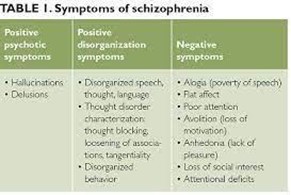A nurse is providing teaching about lithium to a client who has bipolar disorder. Which of the following information should the nurse include?
"Restrict your fluid intake while taking lithium.
"Double your dose of lithium if you experience blurred vision."
"Consume a moderate-sodium diet while taking lithium."
"Slurred speech can indicate that your lithium level is low."
The Correct Answer is C
Choice A rationale:
Restricting fluid intake is not the primary concern when taking lithium. It's more important to maintain a consistent level of sodium intake.
Choice B rationale:
Doubling the dose of lithium without medical supervision can lead to lithium toxicity, which can be life-threatening.
Choice C rationale:
Sodium levels can impact the effectiveness and safety of lithium. Consuming a moderate- sodium diet helps prevent sodium depletion or overload, which can affect lithium levels.
Choice D rationale:
Slurred speech is not indicative of low lithium levels. It's important to monitor for signs of lithium toxicity, which include tremors, confusion, and GI symptoms.
Nursing Test Bank
Naxlex Comprehensive Predictor Exams
Related Questions
Correct Answer is B
Explanation
Choice A rationale:
Upper abdominal pain is not a typical manifestation of diverticulitis. It is more commonly associated with conditions affecting the upper gastrointestinal tract.
Choice B rationale:
Rationale: Diverticulitis is characterized by inflammation or infection of diverticula (small pouches) in the colon. Manifestations of diverticulitis can include abdominal pain (usually left lower quadrant), fever, nausea, vomiting, and changes in bowel habits.
Abdominal distension may indicate worsening inflammation or complication of diverticulitis.
Choice C rationale: Clay-colored stools are more characteristic of liver or bile duct disorders, not diverticulitis.
Choice D rationale: Gastric reflux is not a common manifestation of diverticulitis. It is more related to gastroesophageal reflux disease (GERD) or other upper gastrointestinal issues.
Correct Answer is B
Explanation
Choice A rationale:
Magical thinking is a positive symptom of schizophrenia, involving unrealistic beliefs or perceptions.
Choice B rationale:
A flat affect is a negative symptom of schizophrenia characterized by reduced emotional expression. Negative symptoms involve a decrease or loss of normal functioning, and a flat affect is one of the most common negative symptoms seen in schizophrenia.
Choice C rationale:
Ideas of reference are also a positive symptom, involving the belief that neutral or unrelated events have special significance related to oneself.
Choice D rationale:
Clang association is another positive symptom, involving the association of words based on similar sounds rather than meaningful connections

Whether you are a student looking to ace your exams or a practicing nurse seeking to enhance your expertise , our nursing education contents will empower you with the confidence and competence to make a difference in the lives of patients and become a respected leader in the healthcare field.
Visit Naxlex, invest in your future and unlock endless possibilities with our unparalleled nursing education contents today
Report Wrong Answer on the Current Question
Do you disagree with the answer? If yes, what is your expected answer? Explain.
Kindly be descriptive with the issue you are facing.
